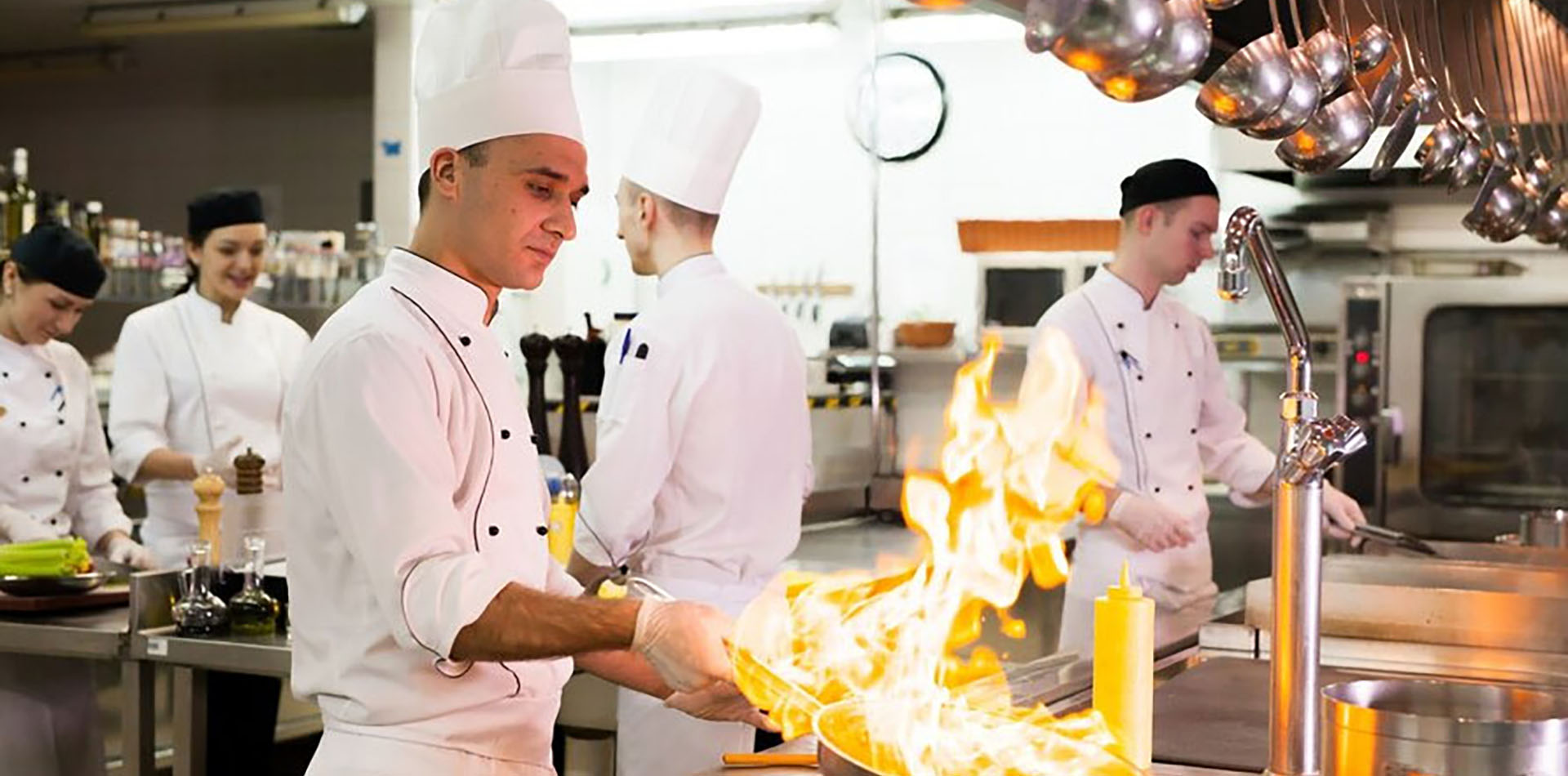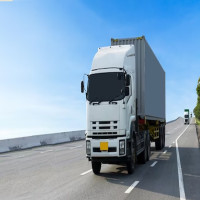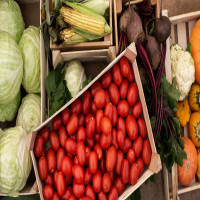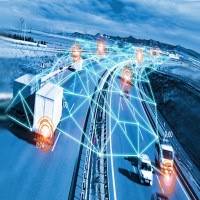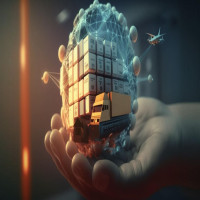As cloud kitchens continue to boom after the pandemic, their penetration in Tier I, II, and III markets, is marred with several challenges, including access to efficient cold storage and temperature-controlled transportation.
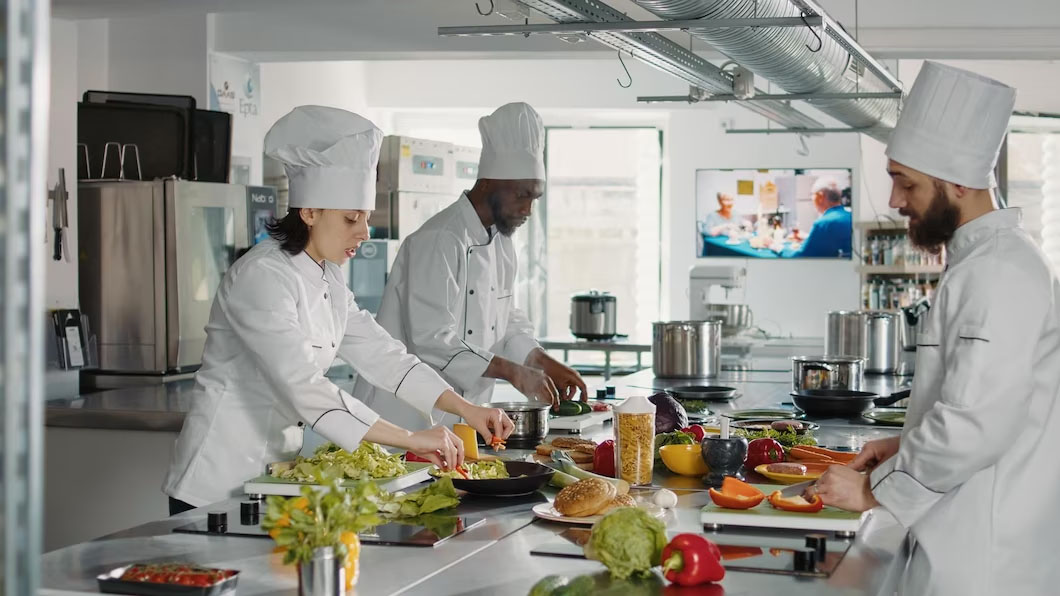
Cloud kitchens has been a buzzword in the Indian food service industry, and for good reasons!
Driven by tech adoption and innovative service offerings, the Indian cloud kitchen market is set to grow at a CAGR of
As cloud kitchens continue to boom after the pandemic, their penetration in Tier I, II, and III markets, is marred with several challenges, including access to efficient cold storage and temperature-controlled transportation.
India incurs food losses to the tune of $14 billion per year due to inefficiencies in the cold supply chain. The cloud kitchen segment also bears the brunt of these inefficiencies, both in the procurement of raw materials and the delivery of finished goods.
There are four reasons why this happens:-
Inefficient last-mile delivery infrastructure for shorter distances is caused due to series of factors, including using non-refrigerated vehicles, lack of temperature-controlled infrastructure for delivering smaller quantities, lapses in maintaining optimum temperatures, and handling by untrained delivery agents.
As a result, cloud kitchens are forced to depend on ice boxes in non-refrigerated vehicles for delivering temperature-sensitive finished products, such as ice creams, shakes, juices, sushi, etc., compromising their quality.
-
The absence of temperature-controlled hyperlocal delivery services results in multiple orders transported in one vehicle, forcing delivery agents to open and shut it multiple times for sorting and unloading at stops.
It is impossible to maintain separate temperatures for products inside one vehicle, resulting in quality loss. By the time the vehicle delivers to the last stop, the product quality is compromised, causing rejections and returns, thus, revenue losses.
-
Operational issues that can be solved with effective tech adoption, like lack of real-time tracking, tracing and temperature monitoring during transit, helps put processes in place for timely monitoring.
-
A lack of cold storage facilities that allow for storing smaller quantities of products and untrained manpower to handle the daily distribution creates a gap that cannot be addressed by traditional means.
While cold storages offer solutions for 1,000+ tonnes of consignments, seldom do they offer solutions to keep 5 or 50 tonnes of materials—usually what cloud kitchens or perishable food companies require.
- The end-consumer receives food with compromised quality, causing customer dissatisfaction and compounding customer retention challenges for cloud kitchens.
- A huge revenue loss due to food wastage. The time, the cost of raw materials used, and the cost of transportation—all becoming a liability
- Unhappy customers also affect cloud kitchens’ ratings and reviews on food delivery apps—a major determinant of their success or failure.
- The last stores/kitchens to receive raw material delivery get sub-par quality products, causing rejections, returns, and revenue losses.
Here’s how you could fix this.
Use IoT to eliminate inefficiencies and human errorIoT integration into cold supply chains helps logistics partners track and trace every step in the transportation process, minimising human error, ensuring greater delivery accuracies, and driving cost-optimising benefits on procurement.
IoT also helps with more efficient route planning—a major hassle for cloud kitchens when scheduling hundreds of deliveries every day.
Leveraging AI and ML to improve the procurement processArtificial intelligence (AI) and machine learning (ML) offer end-to-end visibility and facilitate predictive analysis for every cold chain function Integrating them into your inventory control system helps keep track of stock at all times, assists in better decision-making for stock orders, and ensures having the right amount of stock at hand.
Managers can also account for occurrences, such as harsh weather conditions, and find alternative procurement options to ensure they don’t hamper the quality of the raw material or pay extra for procurement.
Further, AI and ML-based smart sensors can track vehicle maintenance records and predict potential malfunctions based on historical data, thereby eliminating delays.
Smart reefer vehicle fleetReefer vehicles—the temperature-controlled hyperlocal delivery vehicles—could be a game-changer for cloud kitchens. They are a massive upgrade from the ice boxes usually used to transport cloud kitchen products today.
Different cold chain products need to be transported at different temperatures. For instance, ice creams require a lower temperature than fresh juice. With reefer vehicles, products can be maintained at the required temperature throughout the journey—from your kitchen to the customer—something you cannot do with ice boxes.
When equipped with AI, ML, IoT devices, and blockchain-based smart contracts, reefer vehicles offer a near-fail-safe delivery option for procuring quality raw materials and efficiently delivering the final orders.
A tech-driven cold chain is a significant growth catalyst for cloud kitchens, which deals in temperature-sensitive products like dairy, meat, fish, agricultural and exotic plant-based produces, etc.
Waste minimisation directly impacts your profitability and allows you to scale your business at lower margins. A logistics partner with cold chain specialisation powered by technology can help your business get to the next level quicker and easier.
Perfectly stored and transported products create happy customers, translating into better online reviews and, thus, more new customers and revenue.
Moving forward, cloud kitchens would need to team up with cold chain specialists to gain a distinct competitive advantage and own their market.
Swarup Bose is the Founder and CEO of Celcius Logistics.